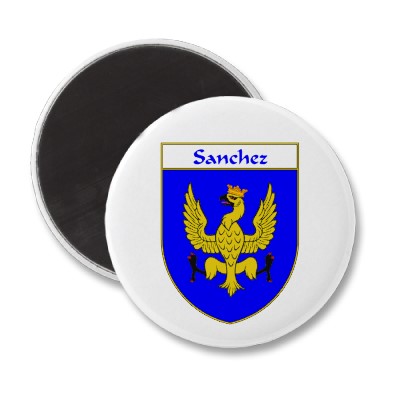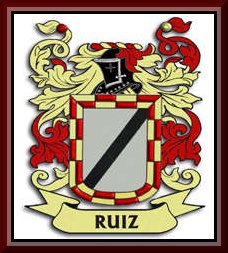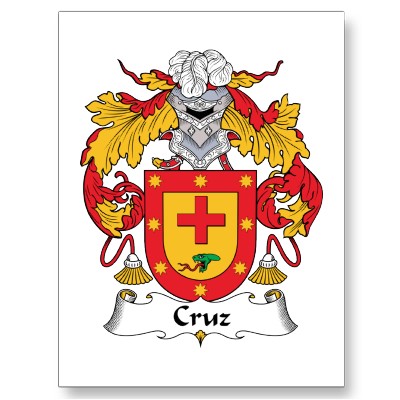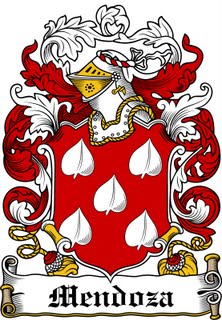
Last names in Spanish are broken down into several categories : Patronymic & Matronymic Surnames – Based on a parent’s first name. Many of the most popular Hispanic last names fall into this category. Names in this group are often made by adding -ez, -az, -is, or -oz to the end of a father’s first name. For example : Leon Alvarez = Leon son of Alvaro. Another type of last name is :Occupational Surnames – these are of course last names which are based on the person’s job or trade. EXAMPLE: Roderick Guerrero – Roderick the warrior or soldier Yet another last name category is that of , Descriptive Surnames – stemming from a unique quality or physical feature of the individual, this type often developed from nicknames or pet names EXAMPLE: Juan Delgado – John the thin. Geographical Surnames – The most common type of Spanish surname, these Hispanic last names are derived from the location of the homestead from which the first bearer and his family lived EXAMPLE: Ricardo de Lugo – Ricardo from the town of Lugo.
LIST OF POPULAR LAST NAMES IS SPANISH
SOURCE : http://genealogy.about.com/cs/surname/a/spanish_names.htm
GARCIA =There are several possible origins for this popular Hispanic surname:
1) The most common meaning of the Garcia surname is “descendant or son of Garcia (the Spanish form of Gerald).”
2) From a medieval given name meaning “like a fox.”
3) One who came from Garcia, in Spain.
MARTINEZ= is a patronymic surname meaning “son of Martin.” Martin is from he Latin “Martinus,” a derivative of “Mars,” the Roman god of fertility and war.
TORRES= A name given to a person who lived in or near a tower, from the Latin “turris.”
FLORES= The surname Flores has existed in Spain since the 12th century, but a common origin has not been found. It is believed to most likely derived from the first name Floro, meaning “flower.”
CHAVEZ= An acient Portuguese surname which literally means “keys,” from the Portuguese “chaves.”
SANCHEZ= a patronymic surname derived from the given name Sancho meaning “sanctified.” (Sanchez= son of Sancho).
VARGAS= One who came from Vargas (steep hill); origin may be Celtic barica or barga (steep hill, or small cottage); principally from Santander.
DIAZ=The surname Diaz comes from the Latin dies which means “days”. Although it is a common Hispanic surname, it is believed to have Jewish origins, predating the Hispanic world. Related to the Spanish surname Diego.
SOTO= Definition: Forest, grove, or swamp. From the Spanish “soto” meaning grove. Most likely referred to one who lived near or in a forest or grove of trees.
Derived from the Old English word “geong,” meaning”ruiz,”(young) this surname was used as a descriptive name to distinguish father from son or to the ruizer(younger) of two relatives with the same first name (similar to the usage of Junior).
FERNANDEZ=A patronymic surname meaning “son of Fernando,” with Fernando being a given name meaning “journey, venture.”
RIOS=Dweller near the river.
LOPEZ=A patronymical surname meaning “son of Lope.” Lope comes from the Spanish form of Lupus, a Latin name meaning “wolf.”
VASQUEZ =Definition: 1) Son of Vasco 2) one who came from the Basque country (from the words vasco, velasco and belasco, each suggesting a place or ethnicity in the Basque provinces of Spain) 3) a shepherd, one who tended sheep.
HERNANDEZ = “Son of Hernando,” or “Son of Fernando,” the Spanish form of the Old German name Ferdinand, meaning “bold voyager.”
CASTILLO= Dweller at or near a large fortified building; worker in a castle.
REYES= From the Old French rey, meaning king, Reyes was often bestowed as a nickname for a man who carried himself in a regal, or kingly, fashion. Alternative meanings include “one who plays the part of a king in a pageant” or “someone who works in the king’s house.”
RAMIREZ= Ramirez is a patronymic name meaning “son of Ramon” (wise protector).
GOZALEZ =Gonzalez is a patronymic surname meaning “son of Gonzalo.” The given name “Gonzalo” comes from the medieval name Gundisalvus, which was the Latin form of a Germanic name composed of the elements gund, meaning “war” and salv which is of unknown meaning.
RODRIGUEZ= Rodriguez is a patronymic name meaning “son of Rodrigo.” The given name Rodrigo is the Spanish form of Roderick, meaning “famous power,” from the Germanic elements “hrod,” fame and “ric,” power.
CRUZ=Cross, dweller near a cross. Cruz means “cross” in Spanish, referring to the cross of the Crucifixion.
MORALES = 1) “Son of Moral,” a given name meaning “right and proper.” 2) Dweller near a mulberry or blackberry bush. 3) “From Morales,” the name of several Spanish towns.
GUTIERREZ= Definition: A patronymic name meaning “son of Gutierre” (son of Walter). Gutierre is a given name meaning “he who rules.”
GARZA =Meaning “heron” in Spanish, the Garza surname usually translates as “dweller at the sign of the heron or dove.” 2) Sometimes a variation of GARCIA.
ROMERO=A pilgrim, one who visits a shrine. This nickname was originally applied to travelers from the western (Roman) empire who had to pass through the eastern (Byzantine) empire on their way to the holy land. According to the Instituto Genealógico e Histórico Latino-Americano, the Romero surname originated principally in the Spanish areas of Galicia, Aragón, Valencia, Catalonia, Andalusia and Castile. Romarin is a French version of this surname, while Romer is the German variation.
MENDOZA =One who came from Mendoza (cold or high mountains); from the Basque root “mendi” suggesting son of the mountain dweller. An ancient surname in Vizcaya, Navarre, Aragón, and Castile, Spain.
MUñOZ= A patronymic surname meaning “son of Muño (a hill) or of Nuño (ninth).”
PEñA= Dweller near a large stone or rock, from the Spanish “Pena” meaning rock.
SANTIAGO= A contraction of Santo Jacobo or Saint James.The Santiago surname is common in Burgos, Aragón and Galicia, Spain.






Awesome blog, extremely informative!